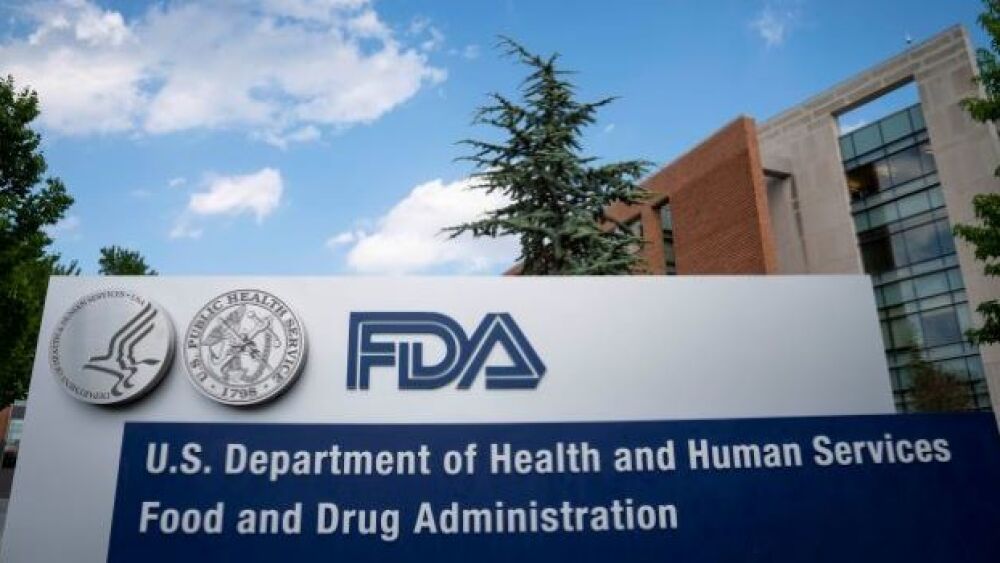The FDA approved bluebird bio’s lentiviral vector (LVV) eli-cel Friday as the first therapy to slow the progression of neurologic dysfunction in juvenile boys with early, active CALD.
Courtesy of Sarah Silbiger/Getty Images
The FDA approved bluebird bio’s lentiviral vector (LVV) eli-cel Friday as the first therapy to slow the progression of neurologic dysfunction in juvenile boys with early, active cerebral adrenoleukodystrophy (CALD).
The gene therapy will be sold under the trade name Skysona. Specifically, Skysona was approved to treat boys between the ages of 4 and 17 with CALD, a fatal neurological disease caused by a mutation in the ABCD1 gene.
Andrew Obenshain, chief executive officer of bluebird bio, called the late Friday approval a “landmark moment” for both the CALD community and the company itself. For bluebird, the approval marks the second gene therapy greenlit by the FDA in a matter of weeks. Last month, the regulator approved Zynteglo (beti-cel) for the treatment of beta thalassemia.
The gene therapy was previously approved in Europe for CALD where it is marketed under the same brand name.
Bluebird now owns two of the four approved gene therapies on the market in the United States. In an investor call Monday morning, Obenshain said the approval of both therapies has cemented the company as a leader in the field.
Skysona, which was greenlit under accelerated approval, is the first treatment available to CALD patients who are unable to receive a stem cell transplant from a matched donor. Even if a donor is available, the treatment option is risky.
CALD is a devastating disease that causes children to progressively slip into a vegetative state. It is a fatal. Adrenoleukodystrophy impacts about one in every 21,000 boys. Of those, approximately 40% will develop CALD, Obenshain noted.
“Without treatment, over time, these boys progressively lose the ability to walk, see, use the toilet and feed themselves, all while their families sit helplessly by,” Obenshain said.
During the FDA advisory committee meeting for Skysona this summer, dozens of parents and caregivers of children with CALD spoke out in favor of the gene therapy. This was despite risks that the LVV could be linked with a rare form of cancer, as was seen in clinical studies. Eli-cel was hit with a clinical hold last year over safety concerns after a patient treated with the gene therapy developed myelodysplastic syndrome. With the approval of Skysona, the FDA lifted that hold, bluebird announced.
One parent, Kristen Finn, whose son died from CALD, said no parent should be told to take their child home to die when there is a functional treatment like Skysona available.
Skysona treatment will have a list price of $3 million. It is a cost bluebird is confident insurance companies will be willing to meet given the lack of treatment for these children, Tom Klima, chief commercial and operating officer of bluebird said this Monday.
The therapy will be available at a handful of treatment centers across the United States, including Boston Children’s Hospital and Children’s Hospital of Philadelphia. It’s a similar model to the one the company announced for administration of Zynteglo, Klima noted.
“We’re confident the payers will recognize the importance of the treatment,” Obenshain added.
Data supporting the company’s Biologics License Application showed the gene therapy demonstrated a 90% survival rate at 24 months. There is data showing that eli-cel remains durable for at least seven years, which is the longest time since a patient had been dosed.
With accelerated approval, bluebird has agreed to provide confirmatory data to the FDA. Obenshain said the data from a long-term follow-up study following clinical trial-treated patients for 15 years, as well as follow-ups from patients treated commercially, will provide the necessary data.
With both Skysona and Zynteglo approved in the U.S., Obenshain said bluebird is focused on the execution of its transition into a commercial company.





